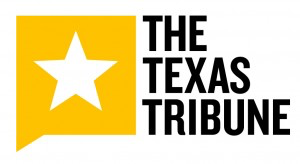"She was told her twin sons wouldn’t survive. Texas law made her give birth anyway."
STORYTELLING CATEGORY — SHOWCASE gold
The Texas Tribune
Contributors: Eleanor Klibanoff
10/11/2023
As the nation grappled with the radically redrawn landscape of reproductive rights after the 2022 overturning of Roe v. Wade, Eleanor Klibanoff focused on examining the real lives of pregnant women, new mothers and the children they bring into this world. We believe in earning deep trust and telling nuanced stories. In this case, by telling the story of a mother forced by the state to give birth.
After reading Klibanoff’s story about a historic court hearing in which women sobbed and vomited on the witness stand while describing being denied medically necessary abortions, another young East Texas mother, Miranda Michel, reached out. She was carrying twins that wouldn’t survive after birth and was unable to have an abortion, by dint of law, geography and poverty. Michel allowed Klibanoff to follow her throughout the experience, including at the hospital after she delivered her conjoined twins, who died soon after birth, and the funeral where they were laid to rest. Klibanoff built a relationship with the whole family, allowing readers to understand the impact this doomed pregnancy had on a community.
East Texas is “behind the Pine Curtain.” It’s an isolated, rural region that has been largely abandoned by state and local media. Reporting there required care and caution to avoid “parachuting in.” Klibanoff took time to get to know the region and build relationships. There’s also a reason we don’t read more closely reported stories about women who have been unable to access abortions: It’s a deeply intimate, often painful journey that can envelop its victims in a thick layer of stigma and shame. It took caution and compassion to build a trusting relationship with these women, not just to get them to speak with Klibanoff.
After birthing and burying her twin boys, Michel was so mired in grief that she also retreated, declining additional visits from Klibanoff and other media outlets as they followed up on The Tribune’s reporting. It was a practice in patience, something reporters aren’t always good at, and humanity, something we should never leave at the door, to wait for her to be ready to share her story.
It is a significant point of pride that Michel felt the story accurately reflected her lived experience, and felt empowered by sharing. Readers reached out, unsolicited, to donate thousands of dollars to Michel’s GoFundMe for hospital expenses. The Tribune also provides its reporting for free to peer media outlets statewide to inform local communities about the goings-on at the Capitol. This reporting was republished on the front pages of three outlets following publication.
MAIN LINK to content online
Submitted by Tara Ballew.

